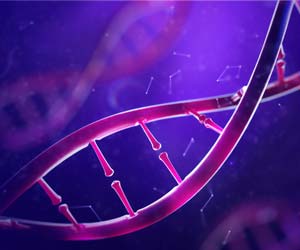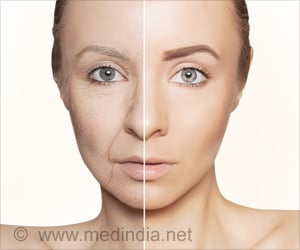- Essential Nutrients, Added Sugar Intake, and Epigenetic Age in Midlife Black and White Women - (https://jamanetwork.com/journals/jamanetworkopen/fullarticle/2821611?resultClick=1)
About
Aging may be inevitable, but the foods you eat could hold the key to slowing it down or speeding it up. Aging is a complex process influenced by genetics, lifestyle, and environmental factors. Recent research has shed light on the significant role that diet plays in modulating biological aging, particularly through epigenetic mechanisms(1✔ ✔Trusted Source
Essential Nutrients, Added Sugar Intake, and Epigenetic Age in Midlife Black and White Women
Go to source).
Epigenetic aging refers to changes in your biological age that are driven by modifications in gene expression without altering the underlying DNA sequence. These changes are influenced by factors like diet, lifestyle, and environmental exposure. Epigenetic clocks, which predict biological age based on DNA methylation patterns, have emerged as valuable tools in understanding this relationship. Among these, the GrimAGE2 clock stands out for its ability to estimate biological age by measuring specific biomarkers associated with inflammation and blood sugar levels.
Did you know?
Consuming just one extra gram of sugar daily could age you by 7 days! #nutrition #medindia #sugar
Epigenetic Clock GrimAGE2
Epigenetic clocks are algorithms that estimate biological age by analyzing DNA methylation patterns at various points across the genome. These clocks are increasingly used to assess the impact of lifestyle factors, such as diet, on the aging process.
GrimAGE2, a machine-learning-based epigenetic clock, is particularly noteworthy for its ability to estimate biological age by examining the methylation of genes associated with c-reactive protein (a marker of inflammation) and hemoglobin A1C (a marker of blood sugar levels). By focusing on these key biomarkers, GrimAGE2 provides insights into how inflammation and glucose metabolism contribute to the aging process.

High Sugar Intake Accelerates Aging
A recent study conducted by researchers at UC San Francisco revealed a strong link between sugar intake and accelerated epigenetic aging. The study, which focused on a diverse cohort of Black and white women, found that for each additional gram of sugar consumed daily, participants' GrimAGE2 scores increased by seven days.
This finding underscores the detrimental impact of sugar on biological aging, likely due to its role in driving inflammation and glycation—processes that contribute to cellular and systemic aging.
Antioxidant-Rich Diets Slow Epigenetic Aging
In contrast to the negative effects of sugar, the study found that adherence to diets high in antioxidants and anti-inflammatory nutrients was associated with slower epigenetic aging.
Participants who followed diets such as the Mediterranean diet, the Alternate Healthy Eating Index, or the researchers' newly developed nutrient index, which emphasizes micronutrients like vitamins A, E, and C, folate, vitamin B12, zinc, selenium, magnesium, fiber, and monounsaturated fatty acids, exhibited lower GrimAGE2 scores.
These findings suggest that a high-quality diet rich in antioxidants can mitigate the effects of aging at the cellular level, offering a protective effect against the biological processes that drive aging.
Study Links Diet with Epigenetic Aging
The UC San Francisco study is one of the first to explore the impact of diet on epigenetic aging in a cohort of Black women, adding valuable insights to the growing body of research on this topic.
The study followed participants from the National Heart, Lung, and Blood Institute Growth and Health Study (NGHS), initially enrolled between the ages of 9 and 19 from 1987 to 1997, and followed up between 2015 and 2019 when they were aged 36 to 43 years.
By analyzing dietary habits and biological age, the researchers established a clear connection between diet quality and epigenetic aging, emphasizing the importance of making informed dietary choices to promote healthier aging.

The Interconnected Role of Inflammation and Blood Sugar in Aging
GrimAGE2’s focus on inflammation and blood sugar as key factors in aging highlights the interconnected nature of these processes. High sugar intake can lead to the formation of advanced glycation end products (AGEs), harmful compounds that promote inflammation and accelerate cellular aging. Inflammation, in turn, can exacerbate insulin resistance, creating a vicious cycle that drives both cellular and systemic aging.
Experts such as Lorna Harries, Ph.D, a professor of molecular genetics at the University of Exeter, emphasize the importance of measuring aging at the cellular level to develop interventions that can mitigate these effects. Harries notes that while different epigenetic clocks may measure various aspects of cell physiology, they remain one of the few tools available to assess the impact of lifestyle factors on aging in living people.
Summary
The study from UC San Francisco adds to the growing evidence that diet plays a crucial role in influencing biological aging through epigenetic mechanisms. High sugar intake has been shown to accelerate epigenetic aging, while adherence to antioxidant-rich diets can slow this process.
As research in this field continues to evolve, epigenetic clocks like GrimAGE2 will be instrumental in developing targeted interventions to promote healthy aging. These findings underscore the importance of making informed dietary choices to support long-term health and longevity, offering practical guidance for those seeking to age gracefully and healthily.









